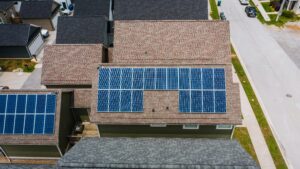

Re(source) Partners with The Solar Club and UtilityNet
Re(source) Energy partners with UtilityNet and The Solar Club to expand a community-centric carbon offset payment platform
Home » What is Additionality?


Additionality is the property of an activity adding something new to the context. It is a determination of whether an intervention has an effect when compared to a baseline measurement.
Additionality is a crucial component of carbon offset creation because if it is not additional, a carbon offset does not reduce greenhouse gas (GHG) emissions.
Carbon offset credits are considered additional if the emission reductions happen only because these credits can be sold. This means the reductions wouldn’t occur without the financial incentive from selling the credits. This concept is important because it ensures that the offsets lead to real, extra reductions in emissions. If the reductions would have happened anyway, even without the ability to sell the credits, then they don’t actually add any new benefits to the environment.
So, it is important that offset credits contribute to real, additional greenhouse gas reductions to make a positive impact on the electricity grid and, in turn, the environment.


Re(source) Energy partners with UtilityNet and The Solar Club to expand a community-centric carbon offset payment platform


You have two main options when it comes to your solar PV system’s carbon credits. You can either keep or sell them. Keep Your Carbon Credits Giving up ownership of your system’s carbon offsets means the buyer pays you to reduce carbon dioxide emissions on the electric grid. You are


In Alberta, the carbon pricing schedule is written into legislation at the provincial and federal level so it would require the repeal of both the Greenhouse Gas Pollution Pricing Act (GGPPA) and Emissions Management and Climate Resilience Act (EMCRA) for the value of Alberta offset credits to equal to zero. The Technology Innovation and Emissions Reduction Regulation (TIER), of